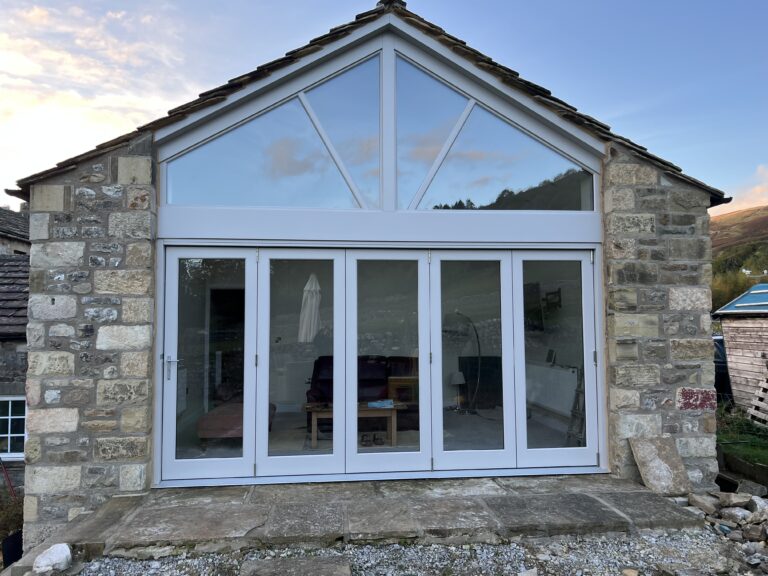 Wood for Good, the UK timber industry’s sustainability campaign or which the British Woodworking Federation is a strong supporter, has launched its 2012 campaign: “Wood First”.
Wood for Good, the UK timber industry’s sustainability campaign or which the British Woodworking Federation is a strong supporter, has launched its 2012 campaign: “Wood First”.
The campaign calls for the introduction of a “Wood First” rule in local authority planning guidance. This would require sustainably sourced wood to be considered, where feasible, as the primary construction material in all new-build and refurbishment projects. The organisation states that this will help the UK meet local, national and sectoral targets for carbon reduction.
Such a rule is already in place in many other parts of the world, most notably France, as a key element of climate policy. Current proposals from the European Commission will enable the carbon stored in harvested wood products to be taken into account in national carbon budgets.
Several local authorities are already considering versions of the Wood First rule, including a major London borough.
Timber’s low carbon properties have already been well documented in a range of scientific studies and academic reports, which outline how wood actively mitigates against the effects of carbon change by absorbing CO2 and emitting oxygen during the growth process, resulting in carbon being captured in timber products.
David Hopkins, Head of External Affairs for Wood for Good said: “Increasing forest cover is recognised as one of the most effective weapons we have in the battle against climate change, and the best way to achieve this is to stimulate demand for sustainable timber and wood products. The introduction of a Wood First rule will help to make this happen.
“Introducing the rule would bring multiple benefits to local authorities. It will help drive efficiencies by increasing the speed of construction, while timber’s exceptional thermal insulation properties will enable them to create homes and buildings that consume less energy.
“When you add in the wider positive economic, biodiversity and community impacts, it’s obvious that one of the most effective ways to build a low carbon future is to start with Wood First.”
The Wood First campaign has strong support from a wide range of stakeholders, including the Forestry Stewardship Council (FSC), which was the first organisation to set global standards for responsible forest management, the Programme for the Endorsement of Forestry Certification (PEFC UK) and Confederation of Forest Industries: promoting forestry and wood (CONFOR).
Charles Thwaites, the Executive Director of the Forest Stewardship Council’s UK National Office, said: “Deforestation is still a major issue in many parts of the world with devastating impacts on the environment and local communities.
“Nevertheless the Forest Stewardship Council is convinced that timber harvested in a responsible manner can be environmentally appropriate, beneficial to local peoples and make a fair economic return. This is why we believe that timber products, when sourced from forests managed and certified to our exacting standards, can be regarded as one of the world’s most sustainable materials.
“And this is why we support Wood First”
Alun Watkins, PEFC UK’s National Secretary said: “As the world’s largest forest certification organisation. PEFC is proud to support Wood First. It is such an important campaign which we hope will help drive demand for products from responsibly-managed forests.
“From our experience of working with local authorities, it is clear that a Wood First policy would help to complement their existing sustainable timber procurement strategies, as well as help them to meet their carbon reduction targets.”
Stuart Goodall, Chief Executive of Confor: promoting forestry and wood, said: “It is about time we put Wood First in this country. The forest based industries play a vital role in the rural and wider economy in the UK yet they receive little attention or support.
“We believe this campaign will help place our sector at the vanguard of the low-carbon economy, developing renewable, recyclable materials from a renewable supply chain.”
Wood for Good has long been promoting a Wood First approach for architects and engineers through the CPD courses and other promotional work it runs. It has now started engaging several local authorities to discuss ways in which a Wood First rule could help them meet their sustainability objectives.
If you would like to learn more or wish to support the Wood First campaign, please visit: www.woodforgood.com
Wood and carbon: The facts
For every cubic metre of timber or wood products used in construction, approximately one tonne of carbon dioxide is saved.
Wood products have some of the best thermal performance properties of any mainstream construction material. Wood insulates 15 times better than concrete, 400 times better than steel and 1,770 times better than aluminium.
Europe’s stock of wood products stores an estimated 220 million tonnes of carbon.
The timber industry employs nearly 200,000 people in the UK and is worth nearly £20 billion to the UK economy. As demand for wood grows, so will the industry, increasing the strength of the rural economy in the UK.
Currently, European forests provide a carbon sink for around 150-200 billion tonnes of carbon dioxide, with an additional 500 million tonnes sequestered annually. These same forests also provide approximately 90% of European timber and wood products, which store an additional 220 million tonnes of carbon dioxide.
Climate change experts have claimed that simply by increasing the UK’s forest cover from 12 to 16 per cent, the country could, by 2050, abate up to 10% of our national carbon dioxide emissions.
At end-of-life, timber can either be recycled into panel boards and other products or used for renewable energy recovery.
Between 12-30 tonnes of carbon can be stored in the fabric and content of an average timber house
A ten per cent increase in the percentage of wooden houses in Europe would produce sufficient CO2 savings to account for about 25% of the reductions prescribed by the Kyoto Protocol.
For more info please visit: www.carbonstore.eu








